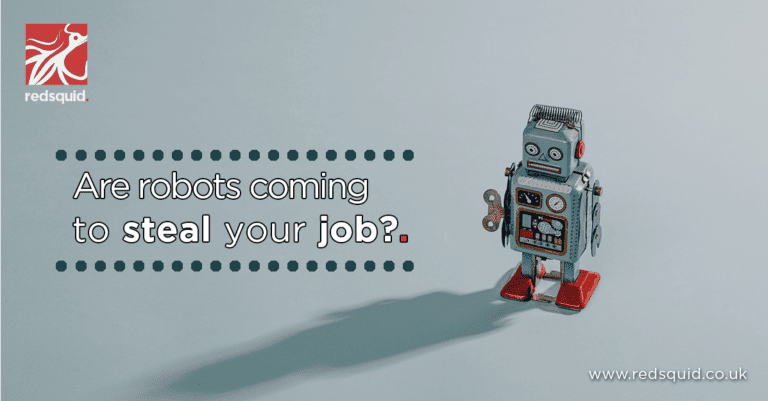Are Robots Coming to Steal Your Job?

Deloitte, one of the world’s largest providers of professional services, conducted a survey into the relationship between technology and employment. After analysing over 100 hundred years of data, they created a report detailing how advancements in technology have affected the UK’s job market. The invention of technologies, ranging from the steam engine to the vacuum cleaner, didn’t just offer new ways for people to spend money, they also opened new opportunities for people to find employment. Deloitte’s study showed that although some jobs were filled by machinery, just as many (if not more) positions were created thanks to technology.
Another trend identified by Deloitte’s researchers, was that the jobs being made redundant by automation were being replaced with roles focusing on newly emerging industries:
“The dominant trend is of contracting employment in agriculture and manufacturing being more than offset by rapid growth in the caring, creative, technology and business services sectors.”
Where older businesses were shifting their budgets and employees elsewhere, newer businesses were popping up thanks the improvements in accessing information and communication:
“Easy access to information and the accelerating pace of communication have revolutionised most knowledge-based industries.”
Technology may render certain job roles redundant, but it equally enables new industries and businesses to form and thrive thanks to the benefits they bring. With improved efficiency and the cost savings that come with it, businesses can afford to invest more into training people for new roles built to enhance the customer experience. In fact, Gartner, an international tech corporation, predicted that emerging technology such as AI will actually create two million more jobs than it will eliminate.
Obviously, it’s within the interests of companies like Gartner and IBM to release positive forecasts around new tech, but the research currently being conducted by some IT influencers is far more detailed than a simple figure can illustrate. Digital business consultants Cognizant recently released a report speculating the emergence of 21 entirely new jobs that will be created in response to the integration of new tech. These positions range from an AI Business Development Manager, whose responsibilities revolve around selling new technology, to an Online Shopping Assistant, who advises and aids customers on making purchases online. The variety of roles on display here is impressive, with jobs in industries ranging from B2B sales to commercial retail, and yet they all share the common thread of being directly linked to an emerging form of technology.
In conclusion, research shows that new technology will…
Help businesses to save time and money by finding more efficient methods of completing repetitive and labour-intensive work.
Remove the need for people to fill dangerous and/or tedious jobs.
Create entirely new and exciting industries requiring people to work alongside emerging technology.
Enable people more time and money to spend, and therefore, generate a greater demand for services and products.
The future doesn’t look quite so bleak anymore, in fact, there’s plenty of reasons for both businesses and employees to be excited. For more advice on what improvements technology can bring to your business, feel free to contact us on 020 8166 4540 or use the webchat window below.
Want to share it with your friends?





